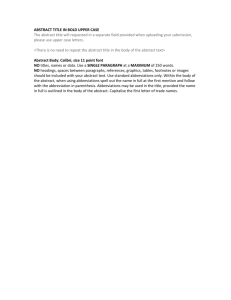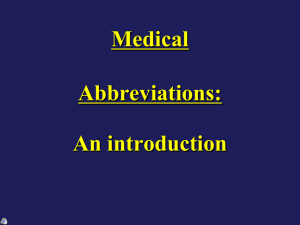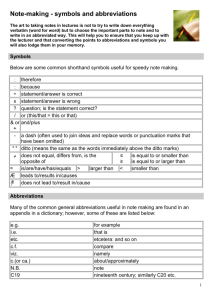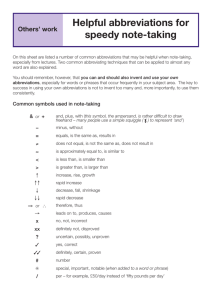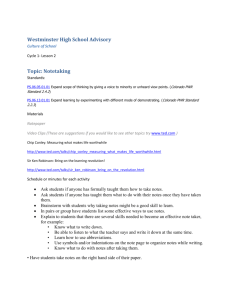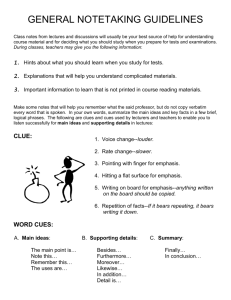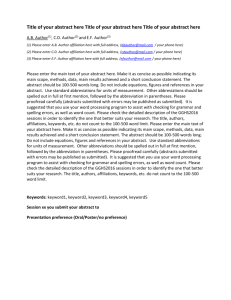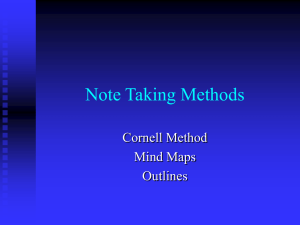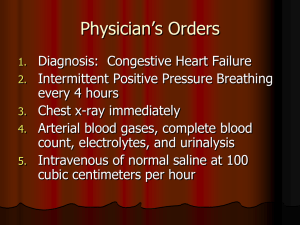Successful Notetaking
advertisement
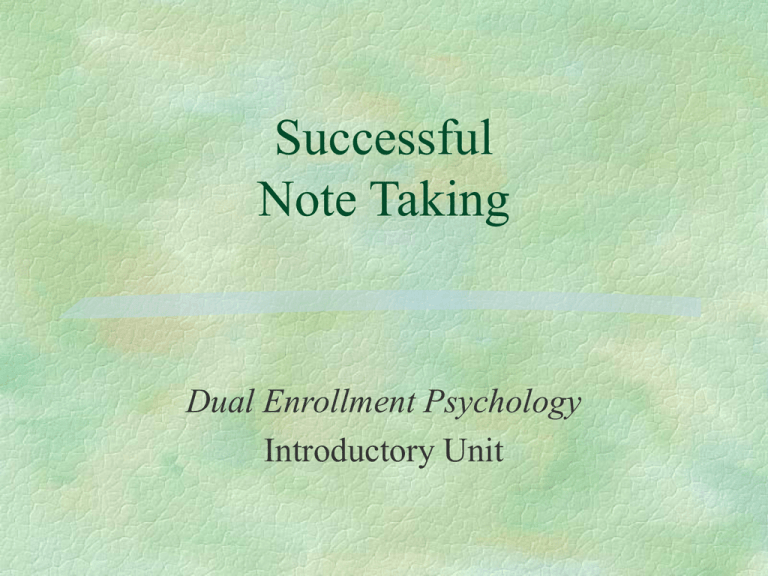
Successful Note Taking Dual Enrollment Psychology Introductory Unit Why is this so important? Your academic success will depend on your ability to filter incoming information and determine how to best record it on paper. You need to find the most effective notetaking strategy for yourself... Basic Lecture Survival Hearing and Seeing well. Keeping up with the lecture. STAYING FOCUSED on the lecture. Taking good notes. Factors that Impact your Focus General interest level…Do I want to learn this? Ability to relate to material Level of participation Amount of sleep the night before Eating/Drinking Level of preparation Caffeine intake much or not enough) (too The Impact of Body Language Eye Contact Nodding Facial Expressions Posture how you are sitting leaning Classroom Behavior Look like you’re taking notes…! Some “Pre-Notetaking” Considerations Class attendance should be consistent Be on time for every class Find the seat where you are most comfortable, and can see and hear the instructor Read the text book before class and complete all assignments The Ideal Supplies for Notetaking Three-ring binder Loose leaf paper 3-hole punch Plastic sheet covers Colored pens Multiple highlighters Notebook dividers Folder pockets (Laptop) “Knowing what to Note” Anything written on board Information from overheads/PowerPoint The instructor’s VERBAL CUES Anything repeated or emphasized Words spelled or defined Lists…(“the first…”) Superlatives Obvious cues (“you need to know this”) “Knowing what to Note” More verbal cues... Contrasting ideas (“one is this, while…”) Absolutes (Never/always/No other…) The instructor’s NON-VERBALS: movement/gestures volume/tempo pauses looking at notes Also consider time spent on a topic Alternate Means of Recording Information: FLASHCARDS Front of card should include term or item to be studied Back of card should include: • definition • related terms • examples • diagrams A convenient way to study…! Besides notes, what else should be on the page? Chapter number and title Corresponding text pages Date Topic being covered Any questions or objectives being referenced Organization of Your Notes It is EXTREMELY important to keep your notes organized…how it is on paper is how it will be remembered!!! More about Organization Use of a three-ring binder and loose leaf paper helps to keep related pages together Leave ample space in your notes to keep them readable and allow for additional fillin information Keep related information grouped together (i.e. start a new chapter on a new page) Make sure you can read your own notes!!! More about Organization... Other things can help keep your notes organized and make important items stand out… use highlighters use colored pens underline/circle important words create charts of significant information create a simple summary outline Using Abbreviations Using some basic abbreviations will help improve your speed and allow you to keep up with the lecture. Some Common Abbreviations w/ w/o ex. # etc. vs info with without example number therefore and so on… versus information Some Common Abbreviations = < > pg R/L yields lower/below higher/above equals less than greater than page right/left Using your own Shorthand Create your own symbols and abbreviations... If a term tends to repeat itself in a course, develop an abbreviation for it Ex. Ex. Ex. Conditioning = cond Memory = mem Psychology = psych Other “Notes”… Don’t write in complete sentences Don’t use exact words…paraphrase what you hear in lecture Use some of your own words Link concepts with symbols instead of words You don’t have to write everything! You can write more than what’s there! Taking Text Notes Try not to recopy what’s in the book…use your own words Focus on key terms Helpful to create a simple outline of text material Compare text and lecture notes Evaluating Your Notes Are my notes organized? Could someone else easily study from them? Do I understand the material in my notes without referencing the text book? Are my notes readable and “easy” to look at? Is everything there that I need to study? Having good notes means... Studying will be more productive… and …Your life will be easier!
